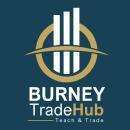
Bulandshahr, Bulandshahr, India - 203001
1
Details verified of Burney TradeHub✕
 Identity
Identity
 Education
Education
Know how UrbanPro verifies Tutor details
Identity is verified based on matching the details uploaded by the Tutor with government databases.

Kali Nadi
Bulandshahr, Bulandshahr, India - 203001
![]() Phone Verified
Phone Verified
![]() Email Verified
Email Verified
Report this Profile
Is this listing inaccurate or duplicate? Any other problem?
Please tell us about the problem and we will fix it.
Class Location
![]() Online (video chat via skype, google hangout etc)
Online (video chat via skype, google hangout etc)
![]() At the Institute
At the Institute
Teaches
Commodities Trading, Intraday Trading, Derivatives Trading
Derivatives Trading Types
Futures Trading Course, Forwards, Swap, Options Trading Course
Class Location
![]() Online (video chat via skype, google hangout etc)
Online (video chat via skype, google hangout etc)
![]() At the Institute
At the Institute
Teaches
Technical Analysis, Fundamental Analysis
Upcoming Live Classes
1. Which classes do you teach?
We teach Stock Market Investing and Stock Market Trading Classes
2. Do you provide a demo class?
Yes, We provide a free demo class.
3. Where are you located?
We are located in Bulandshahr, Bulandshahr.
Answered on 20/04/2024
For stock market trading, you typically need a computer or laptop with a reliable internet connection, trading software or platform access, a brokerage account, and sufficient capital to execute trades. Additionally, having access to financial news sources and market research tools can be beneficial for making informed trading decisions.
Answered on 20/04/2024
Answered on 20/04/2024
Quantitative Trading:
Algorithmic Trading: Quantitative traders use big data analytics to develop complex algorithms that analyze vast amounts of historical and real-time market data to identify trading opportunities. These algorithms can execute trades automatically based on predefined criteria, such as price movements, volume, volatility, and other market indicators.
Statistical Modeling: Quantitative analysts (quants) utilize big data analytics to build statistical models that predict future price movements and assess market risk. These models often incorporate machine learning techniques to identify patterns and trends in large datasets.
High-Frequency Trading (HFT): HFT firms rely heavily on big data analytics to analyze market data and execute trades within microseconds. By processing enormous amounts of data at lightning speed, HFT algorithms exploit fleeting market inefficiencies to generate profits.
Sentiment Analysis: Quantitative traders may use big data analytics to analyze sentiment data from sources like social media, news articles, and financial reports. Natural language processing (NLP) techniques help quantify market sentiment, which can be incorporated into trading algorithms to make informed decisions.
Non-Quantitative Trading:
Fundamental Analysis: While non-quantitative traders primarily rely on fundamental analysis (evaluating a company's financial health, industry trends, etc.), big data analytics can enhance this process by providing access to vast amounts of relevant data. For example, analyzing corporate earnings reports, economic indicators, and industry news on a large scale can help traders make more informed investment decisions.
Market Research: Big data analytics enables non-quantitative traders to conduct comprehensive market research by analyzing consumer behavior, demographic trends, and macroeconomic indicators. This information helps traders identify potential investment opportunities and assess market conditions.
Risk Management: Non-quantitative traders use big data analytics to manage investment risks by analyzing portfolio performance, market volatility, and correlation between assets. By leveraging historical data and advanced risk models, traders can optimize their portfolios and mitigate potential losses.
Class Location
![]() Online (video chat via skype, google hangout etc)
Online (video chat via skype, google hangout etc)
![]() At the Institute
At the Institute
Teaches
Commodities Trading, Intraday Trading, Derivatives Trading
Derivatives Trading Types
Futures Trading Course, Forwards, Swap, Options Trading Course
Class Location
![]() Online (video chat via skype, google hangout etc)
Online (video chat via skype, google hangout etc)
![]() At the Institute
At the Institute
Teaches
Technical Analysis, Fundamental Analysis
Answered on 20/04/2024
For stock market trading, you typically need a computer or laptop with a reliable internet connection, trading software or platform access, a brokerage account, and sufficient capital to execute trades. Additionally, having access to financial news sources and market research tools can be beneficial for making informed trading decisions.
Answered on 20/04/2024
Answered on 20/04/2024
Quantitative Trading:
Algorithmic Trading: Quantitative traders use big data analytics to develop complex algorithms that analyze vast amounts of historical and real-time market data to identify trading opportunities. These algorithms can execute trades automatically based on predefined criteria, such as price movements, volume, volatility, and other market indicators.
Statistical Modeling: Quantitative analysts (quants) utilize big data analytics to build statistical models that predict future price movements and assess market risk. These models often incorporate machine learning techniques to identify patterns and trends in large datasets.
High-Frequency Trading (HFT): HFT firms rely heavily on big data analytics to analyze market data and execute trades within microseconds. By processing enormous amounts of data at lightning speed, HFT algorithms exploit fleeting market inefficiencies to generate profits.
Sentiment Analysis: Quantitative traders may use big data analytics to analyze sentiment data from sources like social media, news articles, and financial reports. Natural language processing (NLP) techniques help quantify market sentiment, which can be incorporated into trading algorithms to make informed decisions.
Non-Quantitative Trading:
Fundamental Analysis: While non-quantitative traders primarily rely on fundamental analysis (evaluating a company's financial health, industry trends, etc.), big data analytics can enhance this process by providing access to vast amounts of relevant data. For example, analyzing corporate earnings reports, economic indicators, and industry news on a large scale can help traders make more informed investment decisions.
Market Research: Big data analytics enables non-quantitative traders to conduct comprehensive market research by analyzing consumer behavior, demographic trends, and macroeconomic indicators. This information helps traders identify potential investment opportunities and assess market conditions.
Risk Management: Non-quantitative traders use big data analytics to manage investment risks by analyzing portfolio performance, market volatility, and correlation between assets. By leveraging historical data and advanced risk models, traders can optimize their portfolios and mitigate potential losses.

Share this Profile
Also have a look at
Reply to 's review
Enter your reply*
Your reply has been successfully submitted.
Certified
The Certified badge indicates that the Tutor has received good amount of positive feedback from Students.